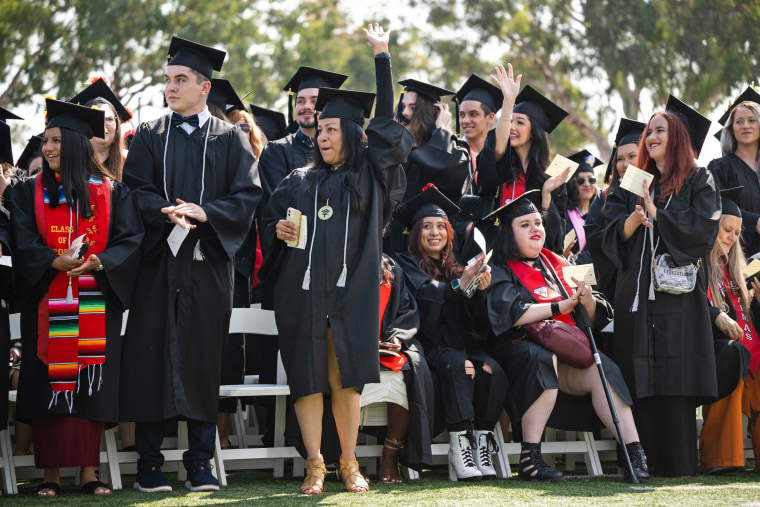Latinos have seen the fastest growth in advanced degree attainment of any racial or ethnic group, primarily bolstered by Latina women, according to a recent Pew Research Center analysis.
The number of Latinos with a graduate degree jumped from just 700,000 to over 2.5 million between 2000 and 2021. This figure accounts for a 291% increase in the number of Latina women who have a graduate degree and a 199% increase in Latino men with a graduate degree.
The analysts looked at data of graduate students from the 1990 and 2000 censuses and the 2010 and 2021 American Community Surveys, and observed that compared to white, Black and Asian Americans, Latinos saw the largest growth in advanced degrees.
Despite this, researchers noted that as of 2021, only 8% of all advanced U.S. degrees are held by Latinos. Hispanics are about 19% of the U.S. population.
The higher numbers of Latinas with advanced degrees is a marked change from the last few decades: In 1990, 60,000 fewer Latina women held graduate degrees than Latino men, but that that gap nearly closed by 2000. In 2010, more Latina women held advanced degrees than Latino men, and in 2021 they continue to outpace their male counterparts.
Still, Latinas with college degrees earn significantly less than their white male peers, a gap that can amount to $2.5 million over a 40-year career, according to CNBC. That gap was acknowledged Thursday on Latina Equal Pay Day.
Of all Latinos aged 25 or older, only 7% held graduate degrees as of 2021, up from 4% in 2000. This statistics still lags behind the 14% of all Americans over 25 who hold advanced degrees.
U.S.-born Latinos are also more likely to have an advanced degree than Latinos who immigrated to the U.S. and, in general, the majority of U.S.-born Latinos have had at least some college experience, compared to a third of foreign-born Latinos. Still, foreign-born Latinos account for over a third of all graduate degrees held by Hispanics.
Among Latino immigrant groups, Mexicans hold the most graduate degrees, but Venezuelans are the most highly educated of the Latino immigrant groups proportionally.
Pew analysts note that over three quarters of Latinos with a degree beyond a bachelor’s degree have a master’s degree, consistent with the general advanced degree-holding population.
Almost half of all Latinos with graduate degrees live in just 10 metro areas in the U.S., including more than 500,000 who live in either New York or Miami. Though both are hubs for Latino populations, most of the metro areas where many Latino graduate-degree holders live are not major hubs for Latino populations, according to Pew.
For more from NBC Latino, sign up for our weekly newsletter.
